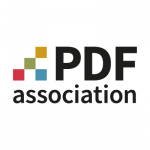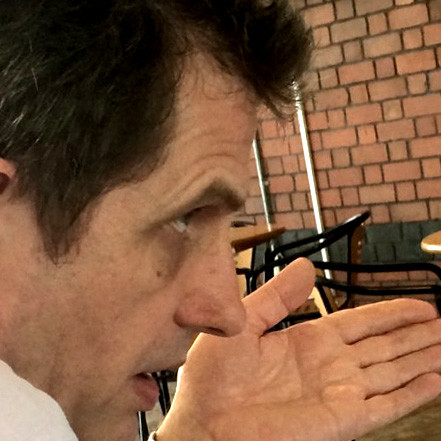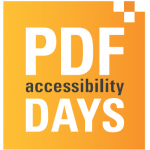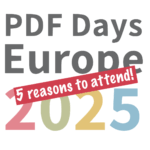Interview with Ted Page on using accessible PDF for school exams

The PDF Association staff delivers a vendor-neutral platform in service of PDF’s stakeholders.


With only a few weeks left until the doors open for the PDF Accessibility Days in Copenhagen on November 12-13, 2015 , I got in touch with Ted Page, who will be speaking at the conference about accessible PDF and school exams. With more than 12 years' experience in the field of document accessibility, Ted has a particular interest in the creation of accessible educational materials, including exam papers and textbooks. As I do not have a lot of expertise in this area, I had the desire to find out more about the topic of his presentation ahead of the conference, and asked Ted for an interview
Interview with Ted Page
Interviewer: Olaf Drümmer
OD. At PDF Accessibility Days in Copenhagen you are going to talk about accessible PDF for school exams. Often, there are heated debates whether PDF, EPUB, plain text, text processor documents, or web pages are the best carrier of educational content when it comes to accessibility. What is your take?
TP. The short answer is that its too early to saymaking exams accessible is a relatively recent initiative (into its third year now)and there are just too many variables that will need careful consideration. In an ideal world the answer might be an XML-based system that was able to generate different end-user formats on demand. But that could be a long way off. Such flexibility would be good, as different formats are likely to be favoured by different candidates. Also, its certainly quicker and easier to make some papers accessible in one format (Im thinking English or History papers and PDF here), while other formats would work better for other topics (Chemistry/HTML5). There is also the argument that, ideally, candidates should use the same devices and technologies in the classroom that they do in the examination room, in which case EPUB and apps would likely be favoured.
OD. What are the strengths of accessible PDF, and also, what are weaknesses, where EPUB, a web page or other approaches will work better?
TP. The main advantage of PDF is that screen reader accessibility is still better, for the most part, than it is currently for other formats such as EPUB. One important exception to this rule is PDFs current lack of MathML and ChemML support. Another disadvantage of PDF is that you will struggle to make accessible questions that require a screen reader user to draw a graph. By contrast, making such functionality available in an app on an iPad would be relatively straightforward. However, it should also be borne in mind that the vast majority candidates who use assistive technologies in exams are not screen reader users. Of these, many would benefit from better text customisation than is currently possible in PDF. Although a properly built PDF will allow user-selected foreground and background colour combinations, there is effectively no such control over font, line height, line length, etc (theres no reflowing these documents as they contain form fieldsAdobe are you listening?).
OD. What aspect should a content producer keep in mind when considering accessible PDF versus accessible EPUB versus a web page or something else?
TP. I would estimate that around 25% of all exam questions contain problems with the content itself, so this is an area where a great deal of progress should be possible, much of it with very little effort. A simple example might be a question such as: A cuboid has sides? which could just be reworded as: How many sides does a cuboid have?.. .... Making this simple change would instantly render the question significantly more accessible to someone who cant see the page, but without changing the meaning. Some content problems would, of course, be harder to solve than this, but many are actually this simple or even more so. Also, almost all papers contain basic layout problems that any proficient UX person would spot in an instant. Again fixing many of these would be simple and would have the added benefit of improving usability for all candidates, not just those with accessibility needs.
OD. Why would or should a person - or in your case a student - with a disability ask for accessible PDF rather than for accessible EPUB or an accessible web page or something else? What would such a person get out of accessible PDF that might not work well with other approaches?
TP. Im not sure theres much choice to be had at the moment. PDF has its head in front in this race right now because the vast majority of exams are completed with paper and pen, that paper having been printed from a PDF. PDF will undoubtedly face stiff competition from other formats in the coming years, but whether or not it can develop quickly enough to see off the competition remains to be seen. A further consideration is that it is by no means obvious that manufacturers of non-screen reader assistive technologies, especially those that are categorised as literacy software solutions (which are widely used in exams), will be prioritising PDF over newer technologies in their development road maps.
OD. What are the one or two most common and counter-productive misconceptions about accessible PDF?
TP. In a presentation on PDF-based exams to a high profile accessibility conference in Paris recently the speaker (from the UK) twice stated that PDF was not a good format if you cant see. This is just wrong. I would be happy to guarantee that in less than 2 hours I could make a 20-page English exam paper accessible, including testing with multiple assistive technologies, and that it would work without any problems for at least 99% of the target audience. So comments to the effect that PDF is inherently inaccessible, although all-too common, are both ill-informed and unhelpful. If people come to believe such pronouncements they may not even attempt to produce accessible papers, and children will miss out as a result.
OD. If you had one wish regarding accessible PDF - what would that wish be?
TP. (Only one? Really?)
- 1a) For exams: reflowable forms with text customisation and MathML/ChemML support. (Thats one isnt it?)
- 1b) For general purposes: that PDFs could be more accessible on mobiles and tablets.
OD. I would like to thank you very much for providing your insights, and I am looking forward to discussing this topic some more with you and other attendees at the PDF Accessibility Days in Copenhagen.
About Ted Page
 Ted specialises in all aspects of PDF and ebook accessibility, from accessible exam papers to annual reports to books. He is a former BBC web producer and member of the BBC Future Media accessibility standards group responsible for the first BBC online standards.
Ted specialises in all aspects of PDF and ebook accessibility, from accessible exam papers to annual reports to books. He is a former BBC web producer and member of the BBC Future Media accessibility standards group responsible for the first BBC online standards.
With over 12 years' experience under his belt, Ted regularly provides a variety of PDF and ebook accessibility training courses (InDesign, Word, Acrobat and forms) to organisations all over the UK and Europe. He also edits hundred of PDFs and ebooks each year to make them accessible. He has a particular interest in the creation of accessible educational materials, including exam papers and textbooks.
Ted Page can be reached through his company's website, diginclusion.com.
About the PDF Accessibility Days 2015
 The PDF Accessibility Days 2015 are an event organised by Jens Bjerre Kirkegaard from IncluDoc, Denmark, in close cooperation with the PDF Association. The main goals of the PDF Accessibility Days are:
The PDF Accessibility Days 2015 are an event organised by Jens Bjerre Kirkegaard from IncluDoc, Denmark, in close cooperation with the PDF Association. The main goals of the PDF Accessibility Days are:
- discuss accessible PDF technology with the worlds leading experts on PDF accessibility
- take the mystery out of creating accessible PDF documents
- demonstrate the benefits of accessible PDF




